14. The China Syndrome
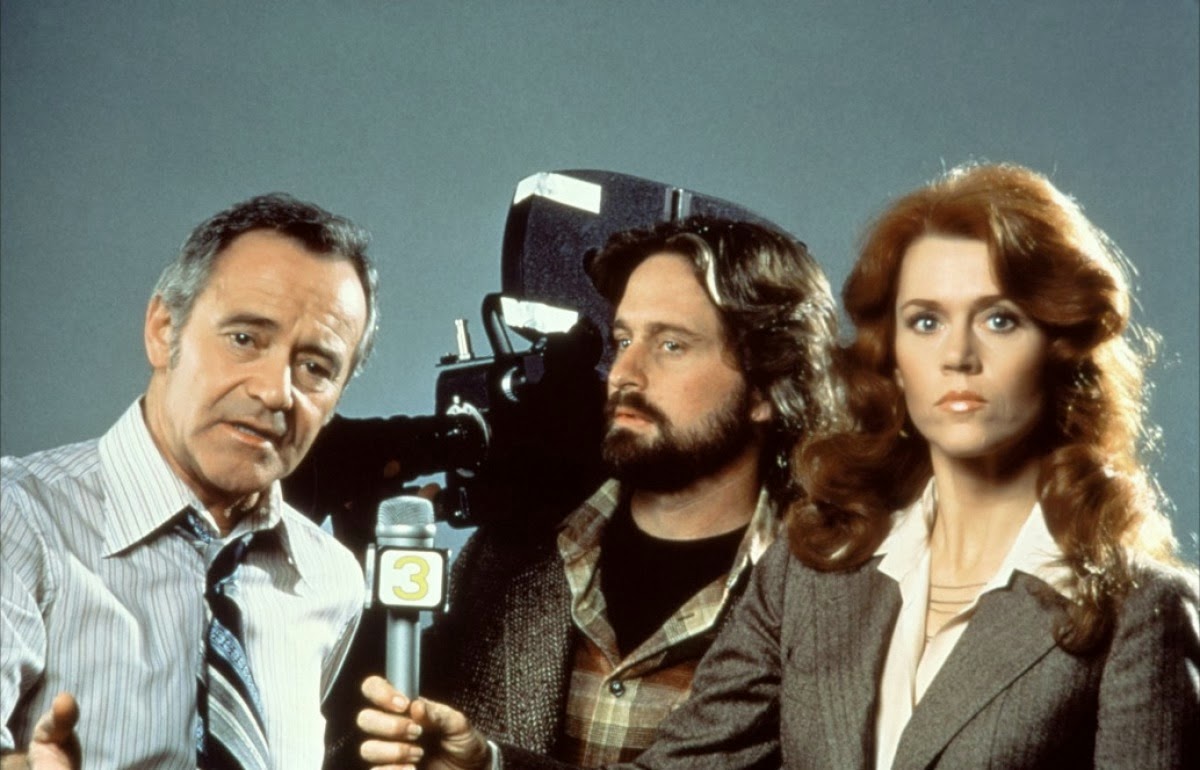
Jane Fonda and Jack Lemmon (both nominated for their leading roles for their work in this film in 1979) headline this thriller involving a TV reporter doing a story about a nuclear power plant and discovering some disturbing facts and witnessing some extremely jarring events which could have long-lasting consequences.
Michael Douglas also stars as a cameraman who accompanies Fonda’s character to document her findings. He was also one of the producers on the film. In a case of art imitating life, this film was released only three weeks before the Three Mile Island nuclear meltdown disaster which happened on March 28th, 1979, which is considered the worst of its type in U.S. history.
The film’s title actually means if there was a disaster of this type within the U.S., the fallout would be so severe it would reach all the way to China. Producer Douglas insisted on intense realism with both the sets and dialogue which resulted in a truly riveting drama/thriller with amazing acting performances.
15. Ace in the Hole
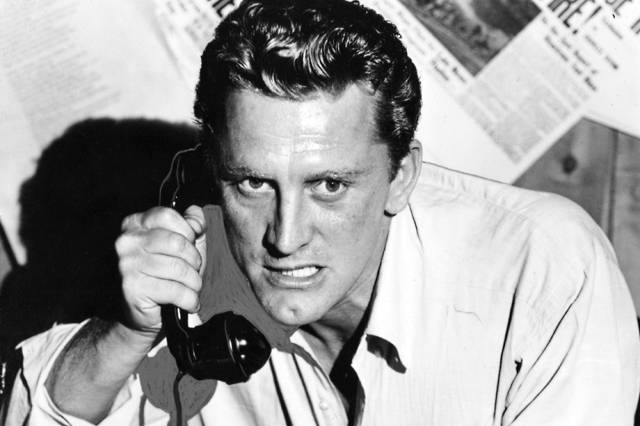
Director Billy Wilder strayed away from his formula of turning stage plays into films with this tale starring Kirk Douglas from 1951. It was also his first time as writer, producer and director. It was also his first box office flop after directing “The Lost Weekend” and “Sunset Boulevard”.
In an early case of a media circus, Chuck Tatum (Douglas) is frustrated by his current job as a reporter and jumps at the chance to capitalize on the opportunity to get back on top when he learns of a man who has been trapped in a cave while looking for artifacts.
He participates and even manipulates the investigation to delay its outcome so he can continue to cover the story and participate in the rising publicity the story is generating. Unexpected events begin to happen in which Tatum has no control and he ultimately has to come to grips with the results.
The film’s title was changed to “The Big Carnival” at the last minute without Wilder’s knowledge and wasn’t reinstated as “Ace in the Hole” until many years later. With Wilder’s remarkable career, this film is often forgotten, but still stands the test of time as a case of how manipulating the media can never be a good thing.
16. Network

It is very rare two actors are nominated from the same film for Best Actor. That was the case in this film where Peter Finch beat fellow “Network” star William Holden (in the last great role of his career) in this very well-acted TV news drama also starring Faye Dunaway, Beatrice Straight (both Academy Award winners for this film), Robert Duvall and Ned Beatty. Unfortunately, Finch died before the awards were handed out, so he received his posthumously.
After an aging network TV anchor is fired, his reaction is unexpected to say the least. The drama plays out for everyone involved including other network personnel. Straight was only on screen for a little over five minutes giving her the briefest Oscar performance of all time.
The infamous line from the film “I’m mad as hell and I’m not going to take this anymore!” is currently the #19 movie quote of all time from the American Film Institute. The ideas and themes put forth in this film are as relevant today as they were at the time including ratings for entertainment instead of raw news and exploiting people to get their stories. Sad, but true.
17. The Absence of Malice
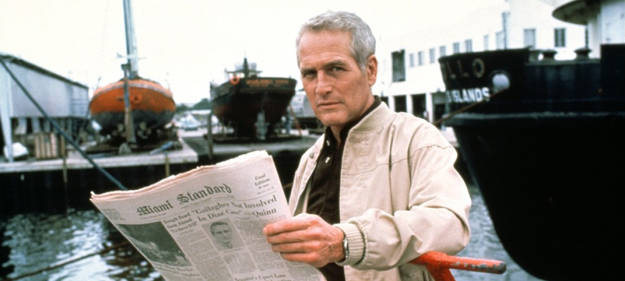
The title is an interesting one which is explained in the film. It refers to the ability by the media to say anything they like about someone as long they do not know the story they are running is false they are not doing anything wrong in the eyes of the law and cannot be prosecuted for it. Paul Newman and Sally Field give standout performances in this 1981 thriller from Sydney Pollack, director of “Tootsie” and “Out of Africa”.
Newman plays the son of a mob boss who is under investigation for possible involvement in the murder of a local union boss. A local reporter (Field) is sent to investigate and uncover the story. Newman and Field end up getting together for a romance as well as to teach the authorities involved a lesson. Newman and Field are both fantastic. There is also a stand-out performance by Wilford Brimley.
18. Salvador
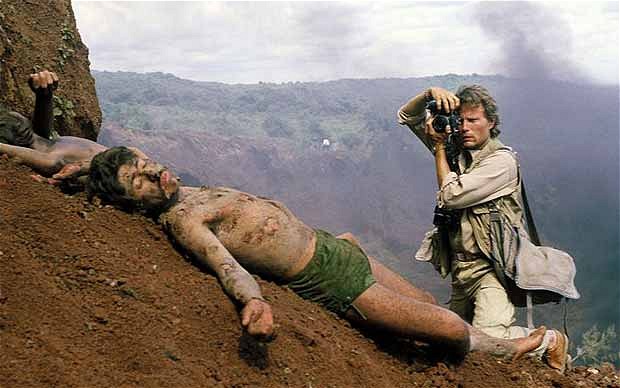
Director Oliver Stone had an interesting year in 1986. He had two films he had directed nominated for Academy Awards with a total of 10 nominations. “Platoon” ended up being the big winner, taking home four Oscars including Best Picture.
“Salvador” tells the story of a photojournalist (James Woods) who decides to journey to El Salvador in 1980 and document the unrest and revolt he observes there. He puts himself in the position of playing friendly to both sides of the conflict to help his own cause and ultimately tries to protect his native love interest and remove her from the country.
This film is quite different in style and substance to “Platoon”, this one feeling much lower budget ($4.5 million compared to $6 million for “Platoon”). James Belushi helps bring some comedy to the atmosphere of the film, helps lighten the tone and provide some rivalry with Woods. Stone’s movies have often been accused of being “preachy” or severely showing the filmmakers’ bias; however, this film take a more straight-forward approach and delivers on the story and message it wants to.
19. Zodiac
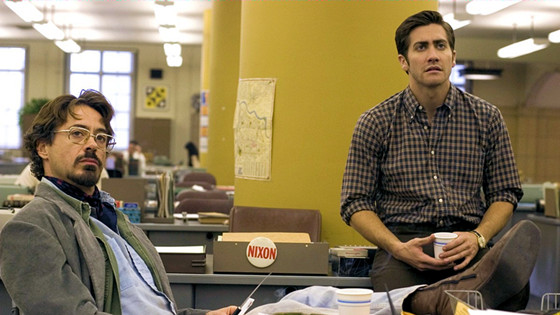
David Fincher has given us some very memorable films including “Se7en”, “Fight Club” and “The Social Network”. This time he focuses on the investigators and reporters given the task of hunting down and capturing the “Zodiac Killer” in 1970s San Francisco. The great cast includes Mark Ruffalo, Anthony Edwards, Robert Downey Jr. and Jake Gyllenhaal. The interesting aspect of this killer is not only the nature of the killings themselves, but how he taunted the police and authorities to catch him.
Eventually, he even would take credit for crimes he did not commit. The authorities thought they were very close to catching him several times, but nothing solid ever materialized. The film tells the methodical nature of police investigation very well and may seem frustrating since the killer was never caught. The “Zodiac” case in still open in several counties in California to this day.
20. Frost/Nixon
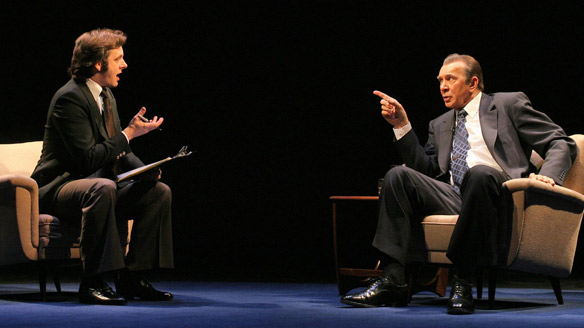
Three years after leaving the white House in disgrace, former President Richard M. Nixon (played by Frank Langella in this film) agreed to sit down for an unprecedented interview to try and explain the events which led to his resignation. The person chosen to interview him was British television man David Frost (Michael Sheen). The film version was based on the play of the same name and also based on Peter Morgan’s screenplay.
Obviously, the most intriguing aspect of this film is the rivalry between interviewer and interviewee. The way the two principles play off each other, bickering and hurling insults, in something great to watch. Just like it happened, Frost and Nixon try to outdo each other, both trying to “win” and get their points across. You can tell they both have agendas, and the way it plays out is a piece of history.
Honorable mentions for this list include:
A Mighty Heart
Sweet Smell of Success
His Girl Friday
Shattered Glass
Cry Freedom
The Year of Living Dangerously
Morning Glory
Newsies
State of Play
The Devil Wears Prada
Anchorman
Author Bio: Andy Kubica is a life-long cinephile. Having spend time as a video store manager, movie theater manager and the first DVD buyer for a former rental chain he now spends every waking moment reducing his film “bucket list”.